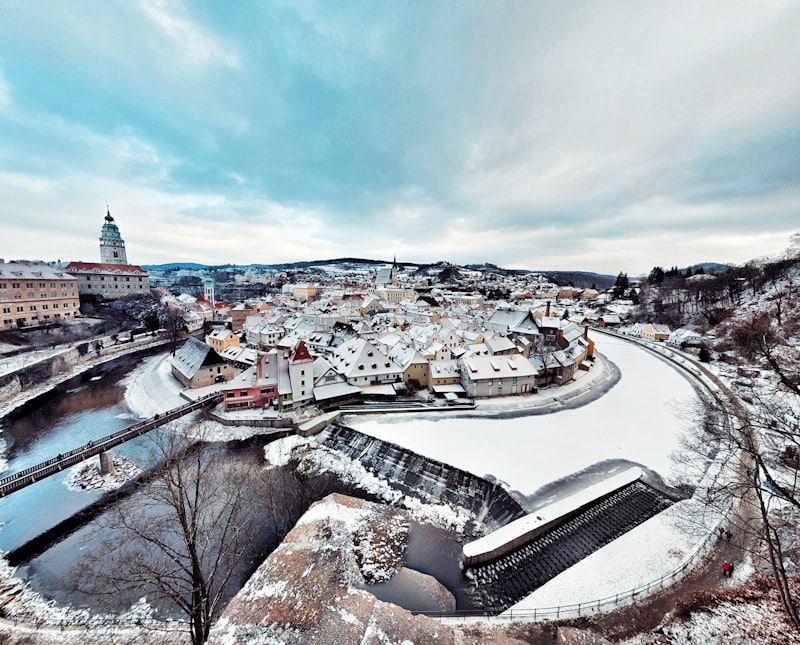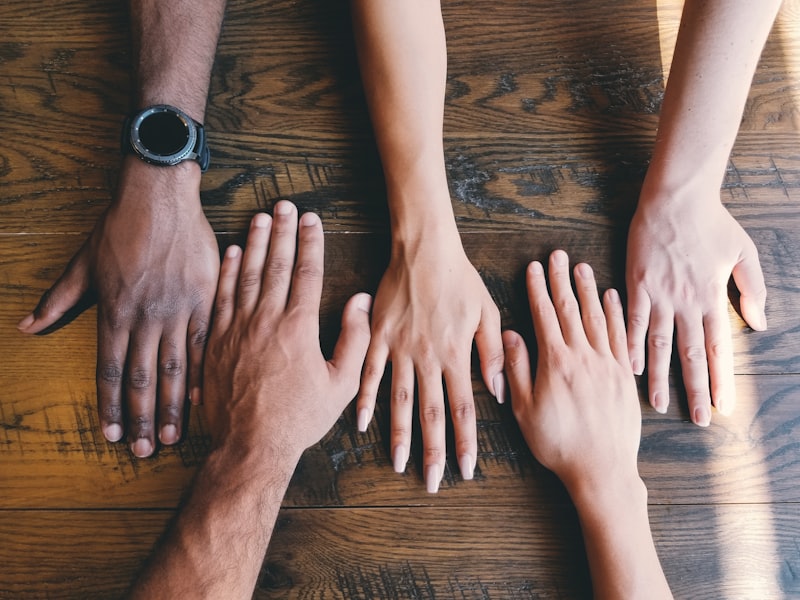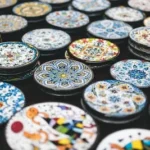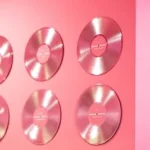- Dreams featuring distorted faces can reveal insights into our self-perception, emotional well-being, and fears and anxieties.
- Distorted faces in dreams can symbolize a disconnect between our public persona and true self, emotional trauma, deep-seated fears and anxieties, and dishonesty or deceit.
- These dreams can also represent hidden aspects of ourselves, impending change or transformation, and issues related to relationships and trust.
- Ultimately, distorted face dreams urge us to confront our fears and insecurities, embrace self-love and authenticity, and seek personal growth and acceptance.
Dreams have a unique way of revealing the hidden depths of our subconscious mind, and one common theme that can appear in our dreams is distorted or deformed faces. These dreams can be quite unsettling, but they hold valuable insights into our self-perception, emotional well-being, and underlying fears and anxieties. Let’s explore the symbolism and meaning behind distorted faces in dreams.
Symbolism and Meaning of Distorted Faces

1. Self-Perception and Identity
When we see our own face distorted or deformed in a dream, it often signifies a disconnect between our public persona and our true self. It may indicate that we are not being authentic or genuine in how we present ourselves to the world. Our dreams are urging us to examine our self-perception and identity, encouraging us to embrace our true selves and align our outward appearance with our inner being.
2. Emotional Trauma and Emotional Hurts
A distorted face in a dream can also symbolize emotional trauma or past emotional hurts that we have not yet healed from. The disfigurement may represent the emotional scars we carry, reminding us of unresolved pain and experiences that have changed us. These dreams encourage us to confront and heal these wounds, seeking support or therapy if needed, in order to move forward and find emotional well-being.
3. Indicators of Fear and Anxiety
Distorted faces in dreams often indicate deep-seated fears and anxieties. The disfigurement may represent our anxieties about our appearance, social acceptance, or fear of being judged by others. These dreams serve as reminders to address our fears and insecurities, to let go of self-doubt, and to build self-confidence. They prompt us to remember that our worth is not defined by external appearances but by our inner qualities and strengths.
4. Sign of Dishonesty and Deceit
Sometimes, distorted faces in dreams can be a reflection of dishonesty or deceit in our waking lives. Seeing the face of someone we know as distorted can suggest that they are not being genuine or trustworthy. It may be a warning to be cautious in our interactions with that person or to reevaluate our relationship with them. Alternatively, if we see our own face as distorted in a dream, it may signify that we are not being honest with ourselves or others, prompting us to seek greater authenticity and integrity in our actions.
5. Uncovering Hidden Aspects of Ourselves
Dreams featuring distorted faces can also serve as a mirror, showing us aspects of ourselves that we have repressed or denied. These dreams urge us to acknowledge and integrate these hidden aspects, allowing for greater self-understanding and personal growth. They remind us that true self-acceptance comes from embracing our whole selves, including the parts that we may perceive as distorted or flawed.
6. Recognizing Change and Transformation
In some cases, distorted faces in dreams can be a sign of impending change or transformation in our lives. The disfigurement may represent the discomfort or uncertainty that often accompanies periods of growth and change. These dreams encourage us to embrace the transformative process, to trust in our ability to adapt and evolve, and to see the distorted face as a symbol of personal growth and renewal.
7. Navigating Relationships and Trust
Dreams featuring distorted faces can also shed light on our relationships and the trust we place in others. If we see the face of someone we know as distorted, it may signify underlying doubts or concerns about that person’s trustworthiness or intentions. These dreams encourage us to listen to our intuition, to take a closer look at the dynamics of the relationship, and to ensure that our trust is well-placed.
8. Overcoming Fear and Embracing Self-Love
Ultimately, dreams of distorted faces challenge us to confront our fears and insecurities, reminding us to embrace self-love and self-acceptance. They invite us to let go of societal expectations, to release the need for external validation, and to find beauty in our own unique qualities and imperfections. These dreams encourage us to treat ourselves with kindness and compassion, knowing that we are worthy of love and acceptance, just as we are.
Common Dream Scenarios

Dreams can be incredibly vivid and sometimes even unsettling, especially when it comes to dreams featuring distorted faces. These dreams can leave us feeling confused and curious about their meaning and symbolism. In this blog post, we will explore some common dream scenarios involving distorted faces and uncover their possible interpretations.
1. Dreaming of Your Own Distorted Face
When you dream of your own face being distorted, it can be a reflection of how you perceive yourself in waking life. This dream scenario often indicates a sense of dissatisfaction with your own actions or aspects of your personality. Perhaps you feel like you are not being true to yourself or that you are presenting a false persona to the world. It could be a sign that you need to take a closer look at your own behaviors and choices. Pay attention to the emotions you feel in the dream – are you surprised, scared, or confused? These emotions can offer additional insights into the meaning of the dream.
2. Dreaming of Others’ Distorted Faces
Dreams of distorted faces can also involve other people in your life. Seeing someone you know with a distorted face can represent your perception of that person or your relationship with them. Consider the emotions you feel towards this person in the dream – are you repulsed, worried, or amused? These emotions can provide clues about your feelings towards this person in real life. It might suggest that you have unresolved conflicts or concerns about this individual. Alternatively, the distorted face could symbolize an aspect of yourself that you see in that person. Pay attention to how others in the dream react to the distorted face – their reactions can also be important indicators of the dream’s meaning.
3. Dreaming of Distorted Reflections
Dreams featuring distorted reflections, such as seeing a distorted face in a mirror or other reflective surfaces, often signal a need for self-reflection and introspection. This dream scenario suggests that there may be a discrepancy between how you present yourself to the world and your true self. It could be a reminder to look within and examine your actions, beliefs, and values. Consider the emotions you feel when you see the distorted reflection – are you surprised, disappointed, or frustrated? These emotions can help guide your interpretation of the dream.
4. Dreaming of Faces With Scars or Burns
Dreams of faces with scars or burns can symbolize emotional pain or past experiences that have left a lasting impact on you. These dream scenarios may indicate that you are still carrying unresolved trauma or hurt from these experiences. It might be a sign that you need to address and heal from these emotional wounds. Alternatively, seeing scars or burns on a face can also signify a new beginning or transformation. It could suggest that you are ready to move on from the past and start fresh.
5. Dreaming of Deformed Faces Turning Normal
In some dreams, distorted faces may transform into normal faces. This dream scenario often represents a resolution of inner conflicts or emotional turmoil. It suggests that you are making progress in accepting and embracing yourself or a particular aspect of your life. It can be a sign of personal growth and inner harmony. Pay attention to the emotions you feel in the dream – are you relieved, happy, or at peace? These emotions can confirm the positive interpretation of the dream.
6. Dreaming of Faces Morphing into Animals or Monsters
Dreams where faces morph into animals or monsters can be particularly unsettling. This dream scenario often symbolizes untamed emotions or subconscious fears. It might suggest that you are grappling with hidden aspects of your personality or deep-rooted anxieties. Consider the specific animal or monster that the face transforms into – the characteristics associated with that animal or monster can provide additional insights into the dream’s meaning.
7. Dreaming of Distorted Faces While Being Chased
Dreams in which distorted faces are accompanied by feelings of being chased or pursued can be highly intense. This dream scenario often signifies a sense of danger, fear, or intimidation in your waking life. It might be a reflection of unresolved conflicts or threats that you are trying to escape from. Pay attention to the emotions you feel during the chase – are you scared, anxious, or determined? These emotions can offer further clues about the specific challenges you are facing in your waking life.
8. Dreaming of Distorted Faces in Other Contexts
It is important to note that the meaning of distorted face dreams can vary depending on the specific context and details of the dream. Consider the setting, the people involved, and the emotions you experience during the dream. These elements can provide valuable insights into the dream’s message and how it relates to your waking life. Remember, these interpretations are subjective and unique to each individual’s personal experiences and emotions.
Cultural, Religious, and Psychological Interpretations

Dreams have always held a significant place in various cultures around the world. Different societies have developed their own unique interpretations of dreams, and distorted face dreams are no exception. Here are some cultural perspectives on the meaning behind these dreams [1]:
- Ancient Egyptian
In ancient Egypt, dreams were considered powerful tools for divination. Their interpretation of distorted face dreams involved extracting hidden prophecies and messages from the dream realm. For the ancient Egyptians, specific images within the dream, such as deep wells or large cats, held symbolic meanings related to future outcomes. - Australian Aboriginal
Australian Aboriginal cultures view dreams as a means to witness the ongoing process of creation called “The Dreaming.” For them, dreams provide a glimpse into how the world is continually being formed. Instead of specific interpretations, Australian Aboriginal cultures believe that dreams connect everyone and everything in the world, promoting a more open and free approach to dream interpretation. - Greco-Roman
In Greco-Roman cultures, dreams were seen as sources of valuable information, often serving as guidance for future decisions. Distorted face dreams were believed to hold hidden messages and could be interpreted as representations of personal anxieties or aspirations. These cultures looked to dreams for direction and insight into their lives.
1. Religious Interpretations
Religion has always played a crucial role in shaping our understanding of dreams. Many religious traditions offer unique perspectives on the interpretation of distorted face dreams. Here are a few examples:
- Christianity
In Christian faith, dreams have been seen as a means of divine communication. Biblical accounts portray dreams as vehicles through which God conveyed messages and prophecies. In the context of distorted face dreams, they may symbolize hidden anxieties or uncertainties that need to be explored and addressed. - Islam
Dream interpretation holds significance in Islamic cultures, where dreams are considered signs from Allah. Islamic interpretations categorize dreams into three types: true dreams, self-reflective dreams, and malicious dreams. Distorted face dreams could represent personal struggles, the influence of the devil, or even messages from God that require reflection and action. - Native American Spirituality
Native American tribes believe that dreams connect them with the spiritual realm and offer valuable insight. In the context of distorted face dreams, Native American spirituality might interpret them as signs of transformation or the need to confront personal issues. The distorted face can represent the internal conflicts or hidden aspects of one’s character.
2. Psychological Analysis of Distorted Face Dreams
Dreams, including distorted face dreams, are also subjects of interest in the field of psychology. Psychological analysis provides valuable insights into the meaning behind these dreams. Here are some psychological perspectives on distorted face dreams:
- Self-Image and Self-Esteem
Distorted face dreams can reflect issues related to self-image and self-esteem. They may indicate feelings of inadequacy or a lack of confidence in one’s appearance or abilities. The distorted face serves as a symbol for the dreamer’s internal insecurities, encouraging self-reflection and the cultivation of a healthier self-perception. - Hidden Emotions and Anxieties
Dreams often provide an outlet for the expression of repressed emotions and anxieties. A distorted face dream could signify hidden fears or unresolved emotional conflicts that need attention. Exploring the emotions evoked by these dreams can offer valuable insights into the dreamer’s subconscious concerns. - Identity and Authenticity
Distorted face dreams can also relate to questions of identity and authenticity. They may highlight the dreamer’s struggle to present their true selves to the world or a fear of not being fully accepted for who they are. Analyzing these dreams can lead to a deeper understanding of the dreamer’s search for authenticity and self-acceptance. - Transformations and Growth
Distorted face dreams can be seen as symbols of transformation and growth. They may suggest that the dreamer is undergoing significant changes or facing challenges in their personal or professional life. These dreams serve as reminders to embrace change and adapt to new circumstances.
Practical Tips and Action Steps

Understanding the meaning behind dreams can be a fascinating and insightful process. If you have recently had a dream about a distorted face and are curious to explore its significance, here are some practical tips and action steps to help you delve deeper into the meaning:
1. Writing Down the Dream
One of the most effective ways to remember and analyze your dreams is to write them down as soon as you wake up. Keep a dream journal or use a notepad or app specifically for recording your dreams. Write down as many details as you can remember, including the emotions, symbols, and characters in the dream. This will help you identify patterns and themes over time.
2. Discussing the Dream with Others
Sharing your dreams with others can provide valuable insights and perspectives. Talk to a trusted friend, family member, or partner about your dream. They may offer a fresh interpretation or help you explore the emotions and themes that arise from the dream. Remember, dream interpretation is subjective, so gather different viewpoints and reflect on how they resonate with you.
3. Keeping a Dream Journal
In addition to writing down individual dreams, keeping a consistent dream journal can help you track recurring patterns and symbols. By analyzing your dreams over time, you can identify common themes or unresolved issues in your life. Pay attention to any changes or shifts in your dreams as they may reflect personal growth or significant events.
4. Seeking Professional Help
If you find that your dreams are causing significant distress or impacting your daily life, seeking professional help from a therapist or dream analyst may be beneficial. These experts can offer guidance and support in understanding the deeper meanings behind your dreams. They may also provide techniques and exercises to enhance dream recall and interpretation.
5. Meditative Insight and Emotional Exploration
Engaging in visualization or meditation exercises can help you tap into your unconscious mind and gain insight into your dreams. Set aside dedicated time for quiet reflection, focusing on your dream and its symbols. Pay attention to the emotions that arise and allow yourself to explore any unresolved feelings or conflicts that the dream may be highlighting.
6. Pay Attention to Everyday Triggers
Dreams are often influenced by our waking experiences and emotions. Pay attention to any significant events, emotions, or conversations that occur in your daily life that may trigger certain dreams. By understanding the connections between your waking life and your dreams, you can gain valuable insight into your subconscious mind and the messages it is conveying.
7. Reflect on Your Waking Life
Take time to reflect on your current circumstances, relationships, and any challenges or issues you may be facing. Dreams often serve as a reflection of our inner thoughts, fears, and desires. Consider how the distorted face in your dream may relate to your self-image, relationships, or unresolved emotions. Be open to exploring different interpretations and consider how they may resonate with your own experiences.
8. Embrace Symbolism and Metaphor
Dreams are often filled with symbolism and metaphor. Instead of taking every element of the dream at face value, consider how each symbol or image may represent deeper meanings or emotions. Explore the personal significance of these symbols and how they may relate to your own experiences and emotions.
9. Reflect on Your Current Emotional State
Dreams can be influenced by our current emotional state. Consider how your emotions during the dream may mirror your feelings in your waking life. Are you experiencing anxiety, fear, or feelings of unease? Reflect on the possible sources of these emotions and how they may be connected to the distorted face in your dream.
10. Set Intentions before Sleep
Before going to bed, set an intention to remember your dreams and gain insight from them. Take a few moments to reflect on any specific questions or challenges you are currently facing in your life. These intentions can help guide your dreaming mind and increase the likelihood of receiving meaningful messages or guidance through your dreams.
Therefore, if you have been experiencing dreams featuring distorted faces recently, don’t be afraid to explore them. By identifying the root causes of your fears and anxieties, you can begin to take steps towards overcoming them. Remember that seeking help from a trusted friend, counselor, or therapist can be incredibly valuable in this process. Treat yourself with kindness and compassion as you navigate these dreams and use them as an opportunity for growth and self-discovery. By embracing your true self and confronting your fears, you can experience deeper levels of happiness and fulfillment in your waking life.










Leave a Reply